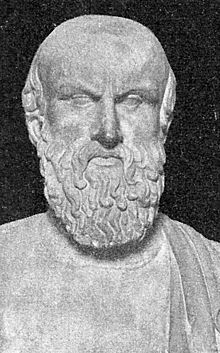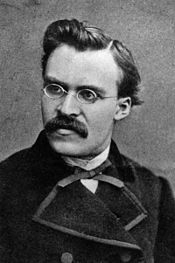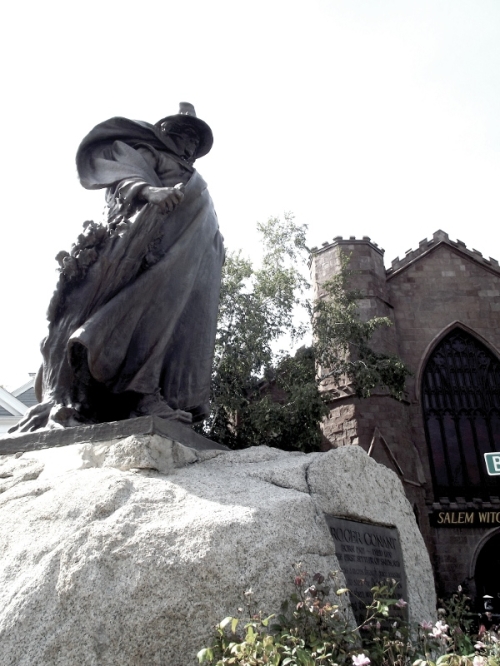Nathaniel Mackey’s 2006 collection of poetry, Splay Anthem, is a work preoccupied with exile, uprootedness, loss, and desire, and the relationship between language, poetry, and these themes. The collection is a complication of fragments from two of Mackey’s longer serial poems, Song of the Andoum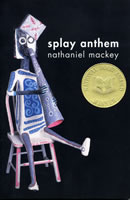 boulou and Mu, and as indicated by its title (“splay,” meaning to divide or sunder, split apart; an anthem typically sung in commemoration of a group or whole), it is interested in the paradoxes and possibilities opened up by conceiving of collectivities born of uprootedness, division, and loss. Since reading Splay Anthem several years ago, I have been fascinated by its interest in what might be called, to borrow from Judith Butler, communities of absence, division, mourning, and loss (Butler, “Violence, Mourning, Politics”). This entry is an edited version of part of an essay I wrote shortly after first reading Splay Anthem in the spring of 2012, but which still seems relevant to the interests of this blog and to the work in postcolonial literature and theory I’m doing now.
boulou and Mu, and as indicated by its title (“splay,” meaning to divide or sunder, split apart; an anthem typically sung in commemoration of a group or whole), it is interested in the paradoxes and possibilities opened up by conceiving of collectivities born of uprootedness, division, and loss. Since reading Splay Anthem several years ago, I have been fascinated by its interest in what might be called, to borrow from Judith Butler, communities of absence, division, mourning, and loss (Butler, “Violence, Mourning, Politics”). This entry is an edited version of part of an essay I wrote shortly after first reading Splay Anthem in the spring of 2012, but which still seems relevant to the interests of this blog and to the work in postcolonial literature and theory I’m doing now.
Both Song of the Andoumboulou and Mu, the poems from which Splay Anthem is (partially) derived, are poems of longing, desire, an almost silent or silenced desperation: what Mackey calls in the preface to the book “an all but asthmatic song of aspiration…a wish, among others, to be we…that of some larger collectivity an anthem would celebrate” (xi). Indeed, this sense of a “lost” or missing “twinness” or hypothetical, possibly ancestral, unity resonates throughout the poems (xi). In “Song of the Andoumboulou: 46,” for instance, the final poem included in the first section of Splay Anthem, entitled “Braid,” Mackey writes,
Knowing of the world it
would remain without
them, they lay entwined
atavistic twins,
and, further down the page: “They lay entwined, asymmetric / twins, each the other’s / long lost remnant” (46). The “they” to whom the poem refers figures here and elsewhere as a kind of originary or apocalyptic—it is not clear which—pair, situated at or near some vaguely foreseen or remembered beginning or end of the world (“After the end. Before / the beginning… / All at once they / both wondered / which” (7)). “Song of the Andoumboulou: 46” takes place precisely on the edge or periphery of this (always-)yet-to-arrive beginning and announces the transformation that will occur in the following section, “Fray”: “I pulled him aside to say, braids / unravel” (48).
The formal logic of the collection itself, an entwinement or braiding together of two distinct and as-yet-incomplete strands, reproduces—gives shape to—the poems’ ritual and almost supplicatory announcement: that of a “semi-sung, semi-wept” cry or bray that is at once a song of loss or remembrance for the poems’ phantom “we,” as well as a kind of cautious affirmation or perpetual striving-toward (xv). “Had there been a song we sang,” writes Mackey,
it was
extremity we sang, all but strangling song,
a
straining
song[.] (84)
This striving or “straining” movement or restricted pursuit, which, here, constitutes the entire content of the Andoumboulou’s song or disjointed anthem, can be understood in relation to the twofold nature of the poems themselves. That is, like the “atavistic” and “asymmetric” twins mentioned above (“each the other’s / long lost remnant”), Mu and Song of the Andoumboulou require one another, as Mackey notes in the book’s opening lines: each is the other’s missing component, the other’s persistent shadow (ix).
While much might be said of the ways in which the two serial poems, Song of the Andoumboulou and Mu, correspond to and complement one another, each responding to and making up for the other’s deficiency or lack, it might also be said that this lack or deficiency is an essential feature of all the poems, one that precedes—perhaps even precludes—any potential completion or exalted oneness towards which the poems collectively strive. That is, insofar as the poems concern longing, desire (of both a physical and non- or metaphysical kind), the wish on the part of the Andoumboulou for the sort of permanent dwelling place or homeland that the poems repeatedly invoke, they speak, too, both implicitly and explicitly so, of a basic absence or scarcity within their existing world. Regarding the anagrammatically-named stranger who appears in “Song of the Andoumboulou: 40,” for example, Mackey writes,
Climb was
all anyone was, he went
on,
want rode our limbs like
soul, he insisted[.] (21)
“Soul,” here, is figured, paradoxically, as a kind of absence of soul (substantive, positive), synonymous with “want” or desire, and the pair of lovers is defined not by any particular quality or attribute belonging to them—“belonging” suggesting possession, achievement, the condition of having attained (something) or of having arrived—but by their mutual and unending “climbing” or striving. In other words, the pair or possibly larger assembly—the “our” of the fourth line—is reduced to the only thing that they do share in common: the condition of “wanting more than was / there,” that of never having arrived (12).
In the lines from “Song of the Andoumboulou: 52” cited earlier in this essay—“it was / extremity we sang, all but strangling song, / a / straining / song”—we witness again this sense of an endless and nearly impossible reaching or striving-toward that characterizes much of Mackey’s work. Here the poem itself appears to approach a kind of musical or poetic extremity as it moves to single-word lines, the isolated “a” of the third-to-last line “straining” or threatening to destroy the already uncertain sense of continuity or togetherness that the poems continually seek and just barely fail to evoke. Situated along the far right-hand margin of the page, the “a” seems almost to occupy or exceed this extremity that the poem—indeed, all of the poems—struggles to sound, perform, or, in some manner, articulate: one that both limits or circumscribes the experiential possibilities of the poem as poem, as song, and, at the same time, permits—or rather, demands—its very occurrence or continued taking place(ness).
The final two lines, “straining / song,” signal both failure or missed opportunity on the part of the poem as well as a kind of balance or cohesion momentarily restored: they indicate, on the one hand, a return to the intermediary region to which the poem is confined—manifested, formally, by their physical closeness and roughly left-handed alignment on the page—and, on the other, an inability on the part of the poem to move beyond this defined territory into some open, non-bounded space. The lines bring to mind the “andoumboulouous liminality” that Mackey describes in the preface to Splay Anthem—“the draft unassured extension knows itself to be …repeatedly circling or cycling back…as if around or in pursuit of some lost or last note” (xii)—as well as a few lines from the book’s opening poem, “Andoumboulouous Brush: ‘mu’ fifteenth part”:
hoarse-
ness the note they were
after, audible witness
all but out of ear’s
reach …
the “they” of the second line reaching toward and failing to reach beyond the boundaries or margins of the Andoumboulou’s world, in search of the imagined elsewhere posited many times throughout the book; some undiscovered song or way of singing in which their own striving, straining, obstructed pursuit—of one another, of something like the notion of wholeness or completion itself—might become music, sound (7).
Of course, it is this condition, too—of absence, of exigency—that makes the Andoumboulou’s song possible: a distinctive feature of the poems, demonstrated, in a most basic sense, at the level of sound itself. Mackey’s insistence on echoes, vibrations, crevices, cracks, openings and cavities transformed into instruments by way of breeze or breath, underscores this almost trivial observation: that all sound, including that of speech and music, requires an empty—albeit enclosed—space in which to sound, expand, resound or reverberate. In “Song of the Andoumboulou: 50,” for example, one of the earliest poems included in the middle section of the book, “Fray,” Mackey writes of the place or region called by the same name, “Fray,” “Sound’s own principality it was, a / pocket of air flexed mouthlike,” where emptiness is figured as the requisite condition for sound, the space in which sound is produced or constituted (66). Elsewhere the Andoumboulou themselves are depicted similarly as pockets of air or empty vessels-turned-instruments, who become both the source or origin of their collective song as well as the medium or vehicle by which it is sounded, made music:
To the bone meant
to the
limit, at a loss even so, eyes,
ears, nostrils, mouths holes in
our heads a stray breeze made flutes
of[.] (22)
Here the poem begins to perform or embody its own (empty) content, as holes or openings appear in the third and fourth lines. Extended to its furthest “limit” or reduced to some rudimentary, “to the bone” stage—same thing—the poem, too, becomes a function of lack or absence (of substance, of content), now figured as the very condition of and for poetry.
The notion persists throughout Splay Anthem, and is reintroduced in “Song of the Andoumboulou: 60,” the final poem of the book: “A vocation / for lack he’d have said, she’d have said / longing”—the “he” and “she” no longer, or not ever having been, the intertwined pair of the initial section—“a world, were they to speak, between…” (122). At this point speech, even, is reduced to a near-impossibility (“he’d have said, she’d have said…were they to speak,” emphasis mine), as, elsewhere, the song of the Andoumboulou—and, moreover, the poems themselves—are understood in purely and only hypothetical terms, hence the often-repeated “had there been a song we sang…” (116, 115, 84, 72, 70). The song and the poem become their own hypotheticals, which is to say their own absences or phantom parts: the song of the Andoumboulou is the song the Andoumboulou would sing if there were a song, which there is not; the poem if there were a poem. The lines are repeated on the following page, the song or poem having at this final juncture turned echo, murmur, endless “reverb,” a kind of enduring refrain or incessant whisper (109).
“It was a tale told many times over;” “all the songs had long been sung”: the lines are repeated, in various forms, many times throughout the book, signaling, again, the recursive tendency on the part of the poems, and on the part of the Andoumboulou as well (51, 120, 121, 125). We might say that the song of the Andoumboulou, along with the poems themselves, are attempts to disrupt the persistent echo or murmur that the poems perform, to break their own cyclic or circling motion. Of course, the boundary that circumscribes or delimits the Andoumboulou’s existence is at the same time necessary for the realization of their song; sound, as we said above, including that of speech and music, requires an empty—albeit enclosed—space in which to sound, expand, resound, and reverberate. Their song, then, and the poems as well, become an attempt to put an end to music and poetry, to “have been done with singing, / song / not enough” (33). For the end of poetry, of music, marks not only the end of circularity—the kind of incessant return or regression signified by by the final, apocalyptic region of the book, Nub—but also the end of desire, of longing, of absence itself. This is the logic behind the book’s initial poem, and one that is repeated or echoed throughout—the notion that to sing is to sing for the end of singing; to write for the end of writing itself:
soughed, hummed it,
made it buzz… Hummed,
hoped glass would break,
walls fall. Sang thru
the
cracks a croaking
song
to end all song[.] (3)
WORKS CITED
Butler, Judith. “Violence, Mourning, Politics.” Precarious Life: The Powers of Mourning and Violence. London: Verso, 2006. Print.
Mackey, Nathaniel. Splay Anthem. New York: New Directions, 2006. Print.
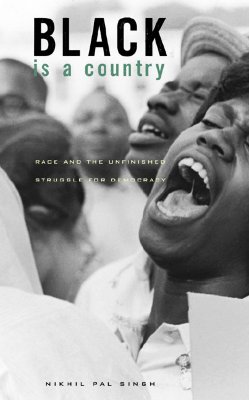 In his book, Black is a Country: Race and the Unfinished Struggle for Democracy, Nikhil Pal Singh draws up the example of the Black Panthers’ solidarity and unity with the Viet-Cong. This solidarity illuminates a feeling on both fronts of existing in a colonized state. The Panthers view Oakland very much in the same way that the Viet-Cong might view Hanoi. These are spaces within a larger colonial nation where the oppressed and the colonized create their own sovereignty. Despite the pressure of French occupation, Ho Chi Minh and his comrades declared Hanoi to be the seat of their revolution in the 1940’s and 1950’s, much in the same way that even with the ever-present police violence and threat, the Panthers declared their revolution in the occupied streets of Oakland in the 1960’s and 1970’s. The problems that this presents for the occupying state should be self-explanatory in hindsight. The Viet-Cong’s declarations of sovereignty resulted in immediate battle with first the French and then American forces, and the Panthers’ declaration resulted in their systematic destruction by the United States government. The threat was clearly tangible. Both organizations had struck upon a way to unravel and disrupt the colonial sovereignty and power of the oppressive occupiers. They forced a move from colonial government through their actions.
In his book, Black is a Country: Race and the Unfinished Struggle for Democracy, Nikhil Pal Singh draws up the example of the Black Panthers’ solidarity and unity with the Viet-Cong. This solidarity illuminates a feeling on both fronts of existing in a colonized state. The Panthers view Oakland very much in the same way that the Viet-Cong might view Hanoi. These are spaces within a larger colonial nation where the oppressed and the colonized create their own sovereignty. Despite the pressure of French occupation, Ho Chi Minh and his comrades declared Hanoi to be the seat of their revolution in the 1940’s and 1950’s, much in the same way that even with the ever-present police violence and threat, the Panthers declared their revolution in the occupied streets of Oakland in the 1960’s and 1970’s. The problems that this presents for the occupying state should be self-explanatory in hindsight. The Viet-Cong’s declarations of sovereignty resulted in immediate battle with first the French and then American forces, and the Panthers’ declaration resulted in their systematic destruction by the United States government. The threat was clearly tangible. Both organizations had struck upon a way to unravel and disrupt the colonial sovereignty and power of the oppressive occupiers. They forced a move from colonial government through their actions. boulou and Mu, and as indicated by its title (“splay,” meaning to divide or sunder, split apart; an anthem typically sung in commemoration of a group or whole), it is interested in the paradoxes and possibilities opened up by conceiving of collectivities born of uprootedness, division, and loss. Since reading Splay Anthem several years ago, I have been fascinated by its interest in what might be called, to borrow from Judith Butler, communities of absence, division, mourning, and loss (Butler, “Violence, Mourning, Politics”). This entry is an edited version of part of an essay I wrote shortly after first reading Splay Anthem in the spring of 2012, but which still seems relevant to the interests of this blog and to the work in postcolonial literature and theory I’m doing now.
boulou and Mu, and as indicated by its title (“splay,” meaning to divide or sunder, split apart; an anthem typically sung in commemoration of a group or whole), it is interested in the paradoxes and possibilities opened up by conceiving of collectivities born of uprootedness, division, and loss. Since reading Splay Anthem several years ago, I have been fascinated by its interest in what might be called, to borrow from Judith Butler, communities of absence, division, mourning, and loss (Butler, “Violence, Mourning, Politics”). This entry is an edited version of part of an essay I wrote shortly after first reading Splay Anthem in the spring of 2012, but which still seems relevant to the interests of this blog and to the work in postcolonial literature and theory I’m doing now.


